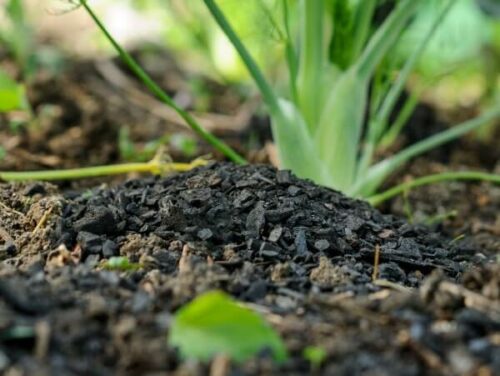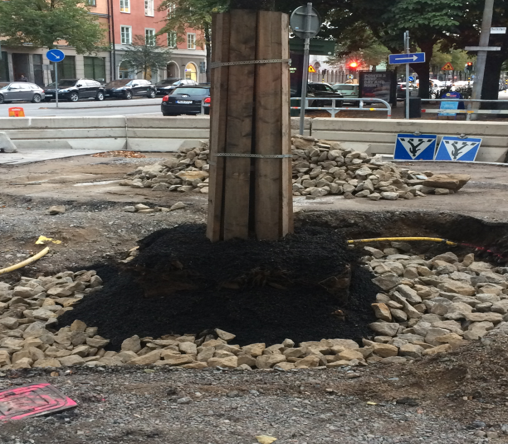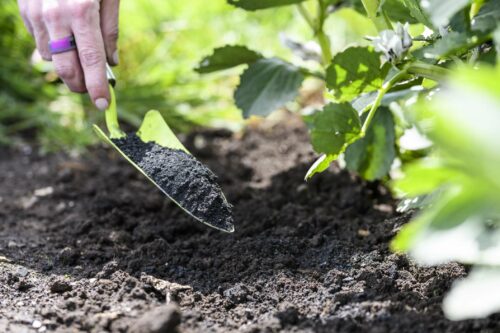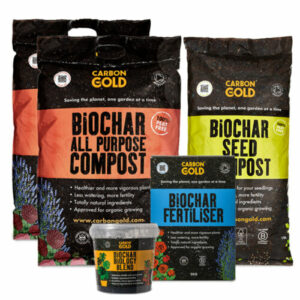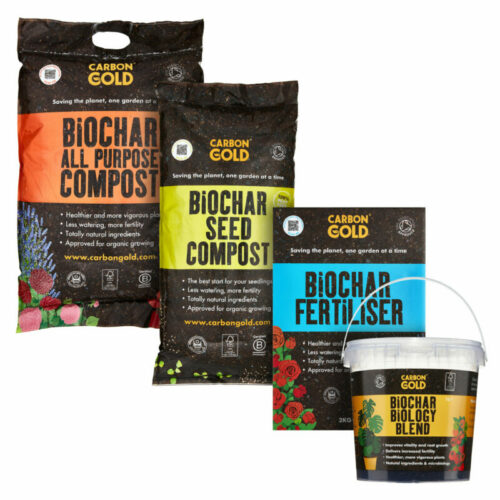
Growing in saline soils
There have been a number of recent studies both in the field and pot and soil column experiments looking at the effects of biochar on saline soils. There are two effects of saline soils on plant growth: osmotic stress, which inhibits plants from taking up water, and ionic stress, whereby toxic ions such as sodium accumulate to excess in the plant and cause leaf chlorosis and eventually necrosis and reduced photosynthesis (e.g. Akhtar, 2015). Sodic soils have weak soil structure and contain water inaccessible to plants and provide poor root zone aeration (Drake 2016). She further comments that 30% of the world’s soils are saline or sodic, making them unproductive, with the area of salinized land continually increasing. The worst class of soil is saline-sodic soil containing even higher levels of salt than saline soils, have poor infiltration rates and very weak soil structure leading to compaction and very poor air and water infiltration and eventually abandonment of the soil for agriculture (Chaganti, 2017).
Case Study
Tomato – Saudi Arabia
Trial outline
Usman (2016) noted that soils in Saudi Arabia are typically high pH sandy and calcareous soils; due to lack of irrigation water saline water is frequently used to irrigate crops, making soils saline. In this experiment prunings of Conocarpus, a common evergreen tree grown in Saudi Arabia were used to produce biochar with a pH of 9.9. Saline and desalinated water were used in the trial, biochar or farm residue were added to soil in a greenhouse, with 20 plants per plot, replicated three times. at 0, 4 and 8% inclusion rate of each material.
Water used for the trial was either well water (pH 7.5 Na content 440 mg/l – 19 mM) and desalinated water (pH 6.1 Na content 161 mg/l – 7.0 mM)
Tomato was grown in the soil, texture coarse sand (93% sand,1% silt,6% clay, which had an initial pH of 8.4 with a very low organic matter content (0.22 %). The plants were grown for 80 days after transplanting.
Increased levels of organic matter & exchangeable K
There was no increase of pH from any of the biochar (or farm waste) applications, but increases in organic matter content of 1.3% (non-saline water, 8% biochar) – significant and 0.89% increase with biochar and saline water (not significant). There was a trend to increased levels of exchangeable K with additions of biochar both in the non-saline and saline irrigation treatments, which was significant at the higher application rate of biochar in both irrigation regimes.
Yields significantly increased
As would be expected saline water reduced plant height, fruit numbers and yield of tomatoes significantly across all treatments. Applications of biochar at both rates significantly increased the yield of tomatoes both with non-saline and saline water. Yields increased with non-saline water by 12 and 20% for 4% and 8% biochar inclusion in the soil and by 14 and 43% for saline water irrigation respectively, relieving the salinity stress on the plants.
Water efficiency significantly improved
Water Use Efficiency, particularly under saline irrigation, was increased with biochar applications – 47 kg/m3 for the control treatment (saline irrigation), 54.1 kg/m3 for the 4% biochar and 68 kg/m3 for the 8% biochar treatment (both values significantly higher than the control) – WUE is calculated as fresh fruit yield divided by water applied.
Summary benefits of adding biochar to saline soils:
- Reduction of contaminants in soil and crop uptake with saline applications- cadmium and lead
- Increases of yield noted in a number of crops including potato, tomato, sorghum, soya bean and wheat
- Reduced uptake of sodium and increased uptake of potassium by crops with biochar application
- Increased availability of potassium in soil from biochar additions noted in several crops
- Water use efficiency is significantly increased (tomato plants) under saline irrigation conditions and sorghum desert soil non-saline conditions (sorghum)
- Reduced soil conductivity and significant reduction of exchangeable sodium in sodic soil when amended with biochar
- Water holding capacity of desert soil was increased by up to 100% with increasing rates of biochar
